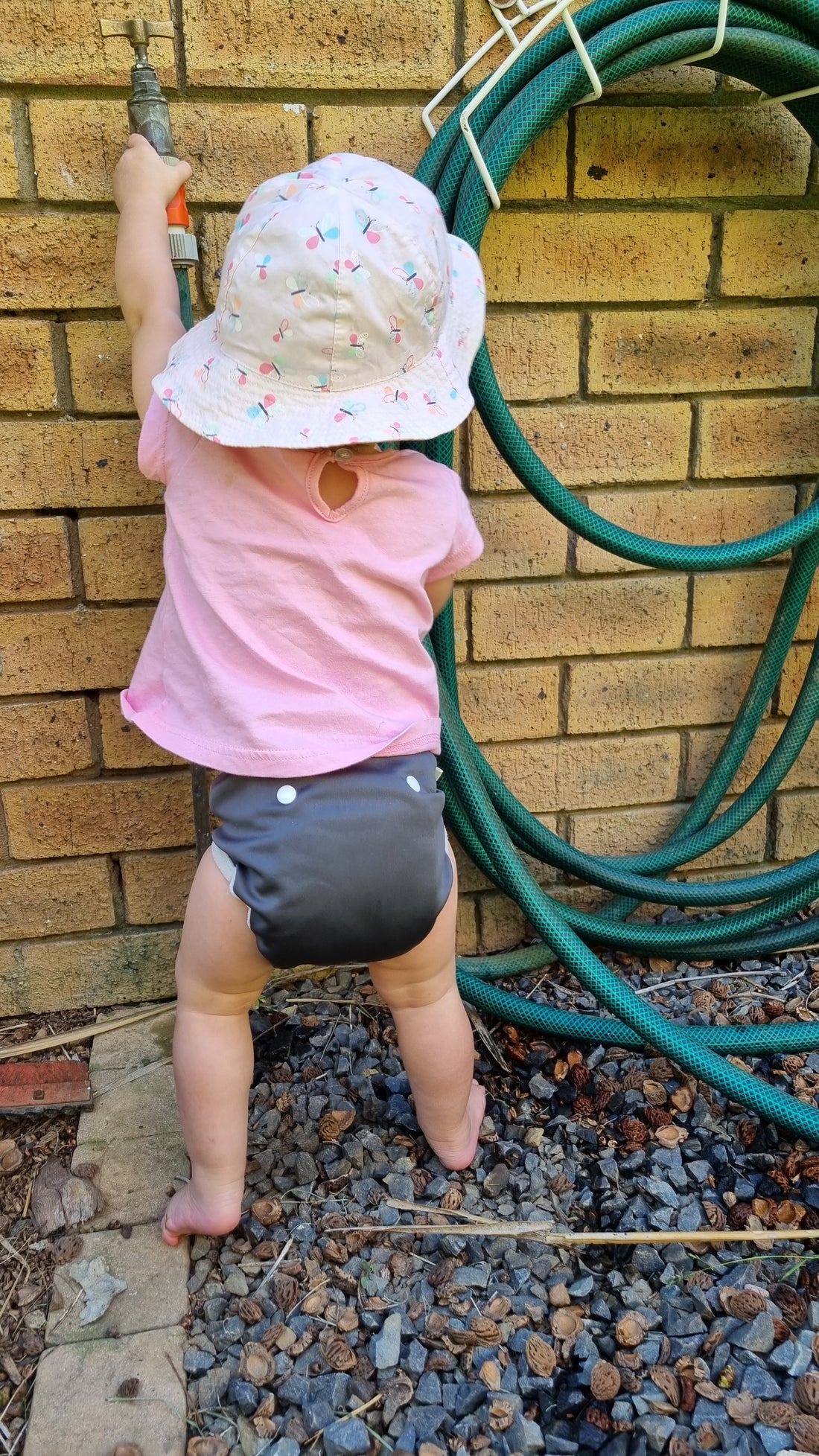
Is it ever too late to make the switch?
Share
Once a baby or two arrive, life feels like it starts to move a lot quicker! The plans and ideas you had and the things you thought you were going to do, somehow just don't always get done. Days flow into weeks that flow into months, years. Suddenly you have a toddler. Yesterday she was a newborn. You always wanted to use cloth nappies but it never happened and that`s ok! I often get asked if starting cloth later on is worth it. Yes, yes and YES!
There is a huge misconception that babies are fully potty trained at 2 years old. Generally this is not the case at all. The ability to hold a wee is a physical development, not a mental one. No matter how hard you try and "train a child", if the baby has not developed this ability, it won't happen and the battle and trauma that can result is difficult. Some babies manage it around 2.5 years old. Others only later. It is very common these days to expect a night nappy to only come off permanently between 3.5 and 4.5 years old. And even after this, there can be accidents here and there. All humans are different.
So let's imagine baby is 1 years old. He still has at least another two years in nappies.
If using single use plastics, working on 6 nappies a day:
Year 1 - 2 = 2160 nappies a year = around R6900.
Year 2 - 3= 2160 nappies a year = around R6900.
Total R13800.
Even if baby is 2 years old, a years worth of single use plastics is still (in our opinion) such a huge waste of money and it all heads to landfill. I can think of many other things to spend over R6900 on right? School fees?
Even if baby is only wearing night nappies you can still make the switch and benefit hugely. Did you know that one child using single use plastics at night will generate almost 245kg of waste in the diaper lifetime? That is basically a quarter of a ton of poopy plastic waste, sat in the earth.
You can get a set of our cloth nappies for around R6000 which will fit from 6kg until potty, can be used day and night and then used again for baby number 2 and 3 or resold at great value.So financially, it makes a huge amount of sense, regardless of baby`s age. It really is never too late. Wer have a pay the nappy set off scherme just contact us.
Let's look at some other benefits
1. Easier potty learning :
Using cloth diapers may prompt your child to try potty training at an earlier age because they don’t have that same dry feeling as they do when they use disposables. Disposables have chemicals that suck the moisture away from the skin- this is done to try and prevent irritation they say however let's be honest, chemicals on baby's bum aint so lekka.
2. No more trips to the shop when you run out of nappies. Yay!
3. Less rashes:
Did you know that diaper rash was much less common before the 1950`s (when single use plastics became popular). Rash creams were a response to diaper rash. It is very common these days to assume we HAVE TO apply a cream because we are using nappies We really don't when using cloth nappies. The array of chemicals found in many single use plastics is horrifying. The diaper industry is regulated by the Consumer Product Safety Commission, which does not require diaper manufacturers to disclose their ingredients or test their products or materials for a variety of chemicals to ensure safety. (Source)
Common disposable nappy rash looks like this:

